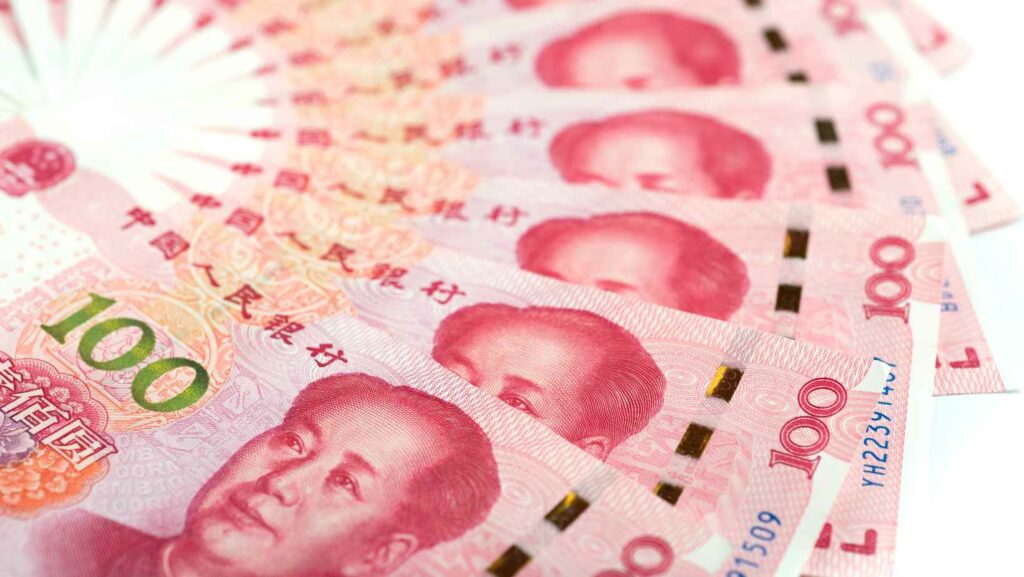
How to Invest in Chinese Currency: A Beginner’s Guide
If you’re considering investing in Chinese currency, it’s important to understand the various options available and the potential risks involved. Investing in foreign currencies can provide diversification to your portfolio and potentially offer opportunities for growth. In this article, I’ll guide you through the steps on how to invest in Chinese currency.
One option for investing in Chinese currency is through exchange-traded funds (ETFs) that track the performance of the yuan. These funds allow you to gain exposure to the currency without directly trading it. Another avenue is opening a foreign exchange (forex) trading account, where you can buy and sell currencies including the yuan.
Understanding The Chinese Currency Market
Investing in the Chinese currency can be a promising opportunity for those looking to diversify their portfolio. However, before diving into this market, it’s crucial to have a solid understanding of how it operates and what factors influence its performance.
Factors Affecting the Chinese Currency Market
The Chinese currency market is influenced by various factors that impact its value in relation to other currencies. Some key factors to consider include:
- Economic Growth: China’s economic growth rate plays a significant role in determining the strength of its currency. When the economy is performing well, attracting foreign investments and experiencing robust trade activity, it generally leads to an appreciation of the currency.
- Trade Balance: China’s trade balance, which represents the difference between its exports and imports, affects the demand and supply of its currency. A surplus in trade balance often strengthens the currency as it indicates higher demand for Chinese goods and services.
- Interest Rates: Like any other currency market, interest rates are an essential factor that influences investment flows into or out of China. Higher interest rates tend to attract foreign investors seeking better returns on their investments, thus driving up demand for the currency.
The Role of Government Policies in the Chinese Currency Market
China has implemented several government policies aimed at managing its currency exchange rate. One such policy is capital controls, which restricts fund flows into and out of China. These controls help maintain stability within their domestic financial markets but can also impact liquidity levels in offshore trading markets.
Additionally, China’s central bank actively intervenes in the foreign exchange market through buying or selling its own currency (yuan) to control fluctuations and stabilize its value against major currencies like USD or Euro.
Analyzing Economic Indicators for Investing in Chinese Currency
To make informed investment decisions regarding Chinese currency (renminbi), investors should carefully analyze relevant economic indicators. These indicators provide insights into China’s economic health and can help identify potential trends. Some important indicators to consider include:
- Gross Domestic Product (GDP): China’s GDP growth rate reflects the overall performance of its economy. Higher GDP growth rates are generally associated with a stronger currency.
- Consumer Price Index (CPI): CPI measures the average change in prices for goods and services consumed by households. Inflationary pressure can undermine a currency’s value, so monitoring CPI is crucial.
- Foreign Exchange Reserves: China’s foreign exchange reserves indicate its ability to manage its currency and withstand external shocks. A healthy reserve level indicates confidence in the country’s economic stability.

How to Invest in Chinese Currency
However, before diving headfirst into this venture, it’s crucial to consider several factors that can impact your investment decisions. In this section, I’ll outline some key considerations to keep in mind when investing in Chinese currency.
- Economic Stability: The stability of China’s economy plays a significant role in the value of its currency. It’s essential to assess the country’s economic indicators such as GDP growth, inflation rates, and fiscal policies. By staying informed about China’s economic stability, you can make more informed decisions regarding your investments.
- Government Policies and Regulations: China has strict regulations regarding its currency and capital controls. Stay updated on any changes or reforms implemented by the government that may affect your ability to invest or repatriate funds. Familiarize yourself with foreign exchange regulations and policies to ensure compliance and minimize potential risks.
- Exchange Rate Fluctuations: Like any other currency, the Chinese yuan (CNY) experiences fluctuations in its exchange rate against other major currencies like the US dollar (USD). Monitoring these fluctuations is crucial because they directly impact the return on your investment. Consider using reliable sources for tracking exchange rates and consult with financial advisors if needed.
Remember, investing in any currency involves risks, including fluctuations and uncertainties. It’s crucial to conduct thorough research, seek expert advice if needed, and carefully evaluate your risk tolerance before making investment decisions.
In the next section of this article, I’ll explore some practical ways to invest in Chinese currency that align with your investment goals and risk appetite. Stay tuned!





